Students Can Help Set the Norms
Welcome back! We hope you had a restful break. No matter how long you’ve been teaching, each semester brings new energy and opportunities, and we all look forward to meeting our new students on the first day of class.
The first day is also our best opportunity to establish our classroom community, spark students’ curiosity, and shape students’ expectations about what they will do to learn in the course. If the first class meeting is just an administrative day, dedicated solely to policies, logistics, standards, etc., we miss our best opportunity to get them talking and excited to learn. They’ll be off to a better start if we help them see value in the course, foster a sense of belonging, and get them actively engaging with one another during class time, so they will expect to do it for the rest of the term.
Many of our courses ask students to actively participate during class time, whether through in-class writing or problem-solving, small or large-group discussions, role plays or debates, or other activities. When in-class activities involve interaction, discussion, and collaboration, it’s helpful to set norms for how things should go early in the semester so that you can return to them throughout the term. Even better than listing out those norms ourselves, we can co-create them with students on the first day of class. We can invite them to share their ideas and suggestions for what makes a discussion or collaboration go well and what behaviors or approaches they think should be avoided.
Inviting students to set norms is a great way to get them invested in the success of the course and give them some ownership of it. College students have a lot of feelings about course policies—you can let them have input into any number of policies—but standards for classroom discussions and participation can be especially fruitful areas to ask students to construct norms. On the first day, you can ask them (perhaps individually and then in small groups) to consider what makes an environment hospitable to constructive discussion. They can think back to courses where they’ve felt especially motivated (or especially disinclined) to participate. What conditions shaped that? What would make them excited to participate? They can also think about what they’d expect of themselves and others in a respectful collaborative environment. After students discuss their ideas in small groups, each group can then report out to the larger group, contributing to a co-constructed list of norms or standards for classroom behavior. Students will be likelier to abide by ground rules they’ve developed for themselves, since they’ve thought about why they’re important, and they almost always come up with the same (or even higher) expectations as you’d make for them. Our colleagues at Boston University call this co-constructed list “Community Agreements” and have a helpful web resource on the topic. If you have a great first-day activity, we hope you’ll share it with us. You can contact us at pro-teaching@fsu.edu.
We hope the first day is enjoyable for you and your students, and we wish you a happy start to a productive semester.
SPRING FACULTY & TA READING GROUPS
The Center for the Advancement of Teaching is offering the following three faculty and two graduate student (TA) reading groups this semester. Each group will meet once a week for three weeks to discuss the books in sections. We hope you can join us! Please register here.
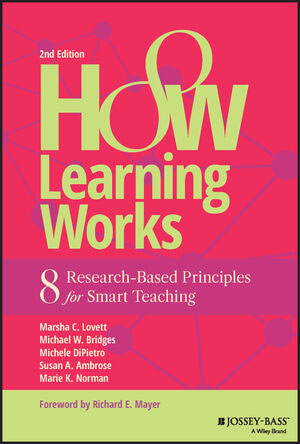
Thursdays: 2/1, 2/8, 2/15
2:00–3:30 p.m. in 432 DIF
Print copy, delivered through interoffice mail
The newly updated edition of this important book translates decades of scientific literature into practical advice, introducing eight general principles of how people learn. The authors draw on cognitive, developmental, and social psychology, as well as educational research, anthropology, etc. The discussion spans issues from memory to motivation, integrating theory with real classroom examples. Participants will develop strategies for strengthening their own teaching through the application of these principles.
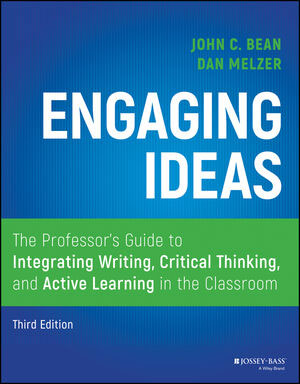
Fridays: 2/9, 2/16, 2/23
2:00–3:30 p.m. in 432 DIF
Print copy, delivered through interoffice mail
The newly revised third edition of John Bean’s best-selling classic will be the foundation of this reading group, in which we will discuss using writing as a mode of teaching and learning in any course. From formal writing projects to informal classroom activities, we will explore the ways writing can be used to help students improve as critical thinkers and effective communicators. Then, we will make plans to apply strategies Bean and Melzer describe in this new edition to enhancing writing instruction and active learning in our own courses.
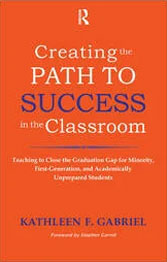
Fridays: 2/23, 3/1, 3/8
11:00–12:30 p.m. in Dirac Conference Room
Print copy, delivered through interoffice mail
Over the past few decades, extensive research has shown that we can enhance student learning by adjusting our teaching practices and the ways we structure our courses. But where do we start? Kathleen Gabriel’s book provides practical strategies for building our courses to ensure that more students learn more and more deeply. Gabriel offers concrete steps we can take to enhance student motivation, structure class time effectively, prompt critical thinking, design effective assignments, and create classroom climates that promote learning.
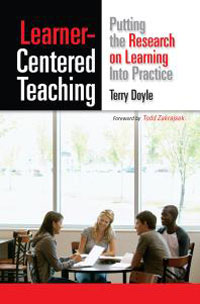
Fridays: 2/2, 2/9, 2/16
11:00–12:30 p.m. in Dirac Conference Room
E-book, available for free through FSU’s libraries
Note: This group is for graduate students only.
Recent decades have brought a wealth of research on learning and cognition. These developments are gradually making their way into work on best practices for the college classroom. Doyle’s Learner-Centered Teaching is a practical, comprehensive guide to strategies for making effective use of the research. When we adjust our classroom focus from teaching to learning, we make our own work more gratifying, and we can enhance our students’ learning experience as well as their mastery of material. In this group, graduate teaching assistants will discuss Doyle’s text and specific strategies and activities for enriching our own classrooms.
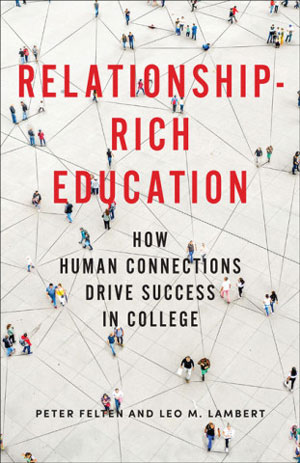
Thursdays: 2/1, 2/8, 2/15
11:00–12:30 p.m. in 432 DIF
E-book, available for free through FSU’s libraries
Note: This group is for graduate students only.
Peter Felten and Leo M. Lambert argue that education is not merely a series of transactions, but instead an opportunity for students to form a web of meaningful relationships that are vital not only to their academic success but also to their sense of belonging and self-discovery. They explain that social connection and belonging are not just pleasant extras in college, but prerequisites for learning, especially for powerful learning. The book provides examples and strategies for how institutions can foster richer learning environments, and the reading group will discuss ways we can shape our teaching to cultivate community and connection in our classrooms.



